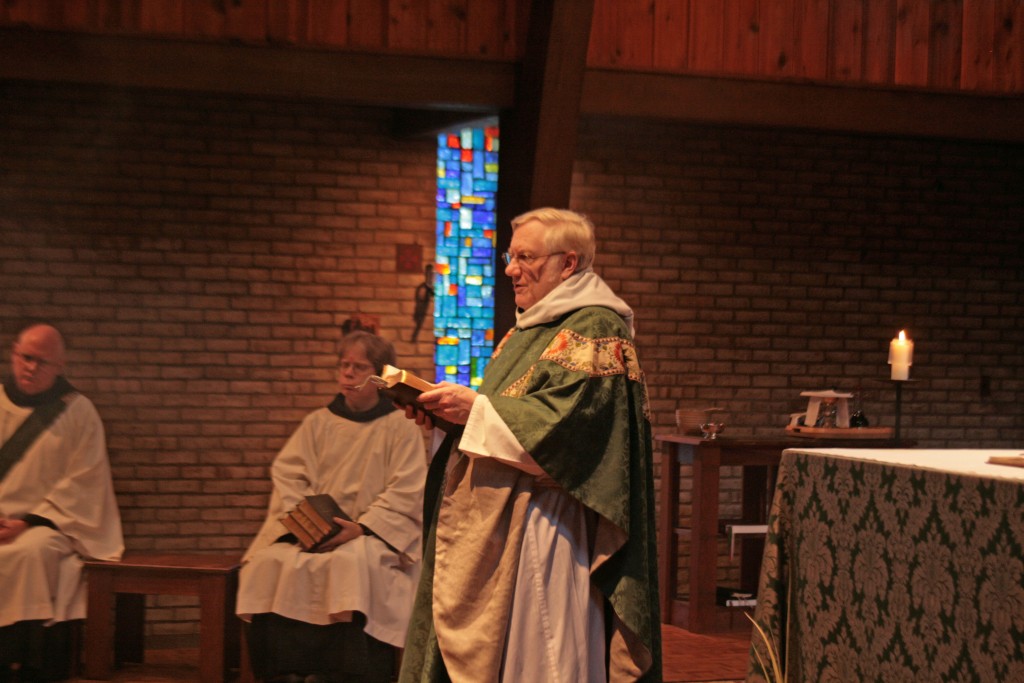Jeremiah 11:18-20
James3:13-4:3,7,8a
Mark 9:30-37
September 23, 2018 Abbey Church Abraham
Jeremiah was given a tough job, and he was rewarded for his efforts by being jailed and ridiculed and eventually dragged off to Egypt – a place where he warned people to not go. His tough job was that of merely telling the truth. He, like almost everyone at that time and location could see that Babylon would soon conquer his nation, as it had conquered all other nations in the area. Even though everyone saw what was happening politically and militarily in the region, many people in power kept their power by assuring others that God would protect their nation, since it was chosen by God. Jeremiah asked the uncomfortable question of why the people in power were praying to false gods rather than the God whom they publicly claimed would help them. He also pointed out the uncomfortable truth that since they had secretly turned their backs on God, God would publicly turn his back on them. We heard a bit of Jeremiah in the first reading this morning talking about his difficult job. He asks to see God’s retribution upon the people who have made his life so hard. Hopefully Jeremiah calmed down later and did the Christian thing by forgiving his persecutors, just like all us Christians here always do.
James (whom we heard in our second reading) was given a tough job, and he has was rewarded for his efforts by having his letter belittled by Martin Luther. His tough job was one of telling people that faith produces works. Most of the bitterness of the Reformation has now settled down, so most people on all sides can see James’s point, but there are still some people either using his letter as a weapon against people with whom they disagree, or trying to explain away the parts of it that don’t agree with their party line. Hopefully the many people from so many different denominations that gather together here won’t ever start a fight: Lutherans with copies of the Letter to the Romans, Catholics with copies of the Letter of James, Anabaptists refusing to join the fight, and Calvinists standing back watching, knowing that the outcome is preordained anyway.
Jesus (whom we heard in our Gospel story) was also given a tough job and he was rewarded for his efforts by being crucified. Jesus was surrounded by disciples who don’t seem to have understood him, but who are we to judge – we still don’t really understand Jesus. The resurrection maybe did compensate for the hard time Jesus had, but we are still making his life rough by doing exactly the same stupid things the disciples did, and worse.
The tough jobs we have talked about this morning involve telling people things that might make them uncomfortable. Many times we find ourselves in the same situation – something needs to be said, and no matter what we say, someone will take it wrongly or as an attack, or misinterpret it. We all sometimes need to do the talking, and we all sometimes need to do the listening, and we all do both jobs well sometimes and badly other times. That’s ok, no one is perfect, and usually we all eventually settle down and get along with each other.
Probably, none of us is ever going to be given the job of saying things of such importance as Jeremiah or James or Jesus. When we do sense the need to say something about something, we need to do it humbly, realizing that we could be wrong, and also realizing that just because we don’t like something, that does not make it wrong or bad or stupid. Most people already know all of our preferences, and they really don’t want to hear about them again. It is also important to remember to listen to other people, because even if we disagree with them, they might be right and we might be wrong. It is especially important to remember to listen to people who have said things in the past with which we disagree, or who come from groups with which we tend to disagree, because sometimes they just might say things that need to be said, even if they say it in harmful or hurtful ways. The Kingdom of God comes to the little child (full of questions), not to the people at the front of the line yelling out answers. So, with Jeremiah and James looking on and joining us, we come to this table to be fed by Jesus. He is the one we really need to listen to, and he does tend to use the unexpected person or event as his mouth. AMEN
